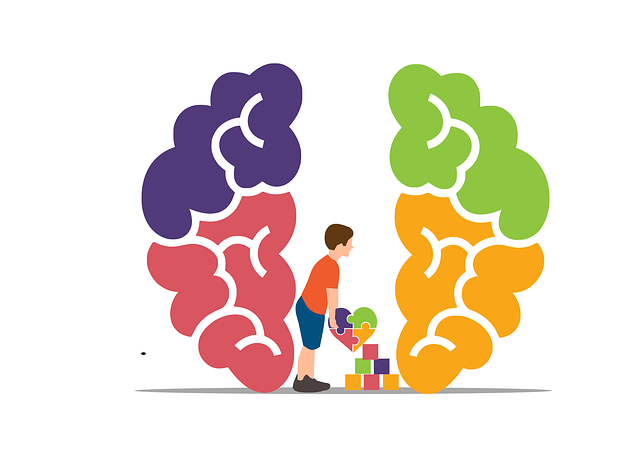Depression, a serious mental health condition, can be mitigated through early intervention and proactive lifestyle changes. Parker Anxiety Therapy focuses on recognizing signs like persistent sadness, sleep disturbances, and concentration issues, targeting risk factors such as family history, trauma, and substance abuse. They offer evidence-based therapeutic approaches including CBT and mindfulness meditation, along with strategies for stress management, sleep hygiene, and balanced diets to empower individuals in managing their mental health and preventing depressive episodes.
Depression is a prevalent yet complex mental health challenge, affecting millions globally. This article explores comprehensive strategies to prevent and manage depression, offering valuable insights from the perspective of Parker Anxiety Therapy. We’ll guide you through understanding the subtle signs and risk factors, uncovering lifestyle adjustments for enhanced mental well-being, and highlighting when—and how—to seek professional support. By implementing these strategies, individuals can equip themselves with powerful tools to combat depression and foster a resilient mindset.
- Understanding Depression: Recognizing Signs and Risk Factors
- Lifestyle Changes for Better Mental Health: A Parker Anxiety Therapy Perspective
- Professional Support: When to Seek Help and Therapeutic Approaches
Understanding Depression: Recognizing Signs and Risk Factors

Depression is a complex mental health condition that significantly impacts an individual’s daily life and well-being. Recognizing its signs and understanding potential risk factors are crucial steps in prevention. Many people may experience fleeting periods of low mood, but depression persists and can disrupt one’s ability to function normally. It’s characterized by persistent feelings of sadness, loss of interest in activities once enjoyed, changes in appetite and sleep patterns, fatigue, difficulty concentrating, and in severe cases, suicidal thoughts or behaviors.
At Parker Anxiety Therapy, we emphasize the importance of early intervention and support. By identifying warning signs such as prolonged feelings of emptiness, irritability, or sudden changes in behavior, individuals can seek help before depression becomes debilitating. Risk factors for depression include a family history of the condition, past traumatic experiences, chronic illnesses, substance abuse, and certain personality traits. Implementing strategies like mindfulness meditation, communication techniques, and mood management skills can empower individuals to take charge of their mental health and prevent depressive episodes from occurring or escalating.
Lifestyle Changes for Better Mental Health: A Parker Anxiety Therapy Perspective

Depression prevention isn’t just about seeking professional help; it also involves proactive lifestyle changes. Parker Anxiety Therapy emphasizes the power of everyday habits in fostering mental well-being. Incorporating practices like mindfulness meditation and self-awareness exercises can be transformative. These techniques teach individuals to stay present, acknowledge their emotions, and develop a healthier relationship with their thoughts. Regular engagement in these activities promotes resilience and equips people with tools to manage stress effectively.
Beyond therapy sessions, Parker Anxiety Therapy encourages clients to prioritize sleep hygiene, maintain a balanced diet, and engage in regular physical activity. These lifestyle adjustments are crucial components of mental health awareness, as they support overall well-being and can significantly reduce the risk of depression. By combining therapeutic interventions with these simple yet powerful strategies, individuals can create a robust defense against depressive episodes.
Professional Support: When to Seek Help and Therapeutic Approaches

When facing persistent feelings of sadness, hopelessness, or loss of interest, it’s crucial to recognize when professional support is essential. Seeking help for depression early on can significantly impact long-term well-being. Many individuals benefit from therapeutic approaches offered by qualified healthcare professionals, such as those specialized in Parker Anxiety Therapy. These experts employ evidence-based methods tailored to individual needs, ensuring a comprehensive and personalized treatment plan.
Effective interventions include various therapeutic modalities, such as cognitive-behavioral therapy (CBT), which helps individuals identify and change negative thought patterns; interpersonal therapy, focusing on improving relationships and social connections; and mindfulness meditation practices, shown to reduce symptoms of depression and anxiety. Additionally, Healthcare Provider Cultural Competency Training plays a vital role in ensuring diverse populations receive sensitive and effective care. Stress Management Workshops organized by mental health organizations can also empower individuals with coping strategies to prevent depressive episodes.
Depression prevention is a multifaceted approach that combines understanding, lifestyle changes, and professional support. By recognizing signs and risk factors early on, individuals can take proactive steps towards better mental health, such as adopting evidence-based strategies recommended by Parker Anxiety Therapy. Seeking help from professionals when needed, whether through therapy or medication, plays a crucial role in managing and preventing depression. Integrating these strategies into daily life can foster resilience and promote overall well-being.














